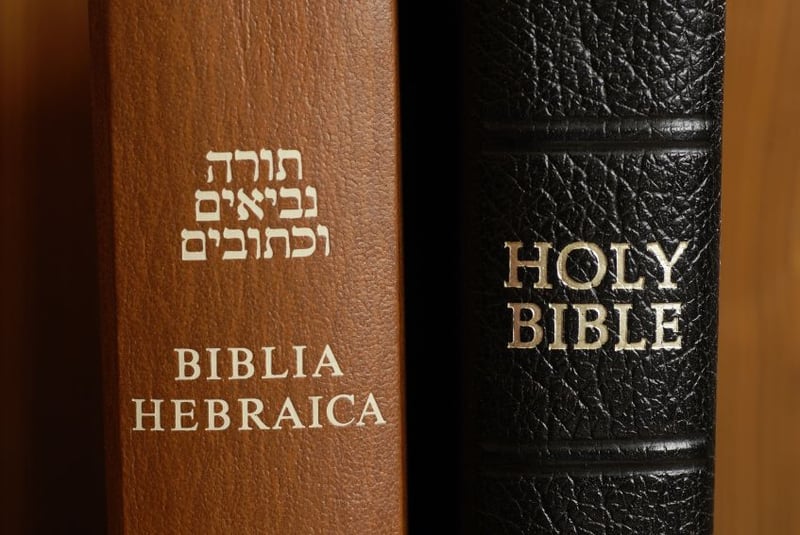The Bible is the best-selling book of all time, and it is fascinating on many levels. The most important Bible fact is that it claims to be inspired by God.

Statistics about the Bible
Did you know that the Bible is by far the best-selling and most popular book of all time? The second best-selling book is one containing the sayings of Mao Tse-tung, with approximately 900 million copies in print. But this is dwarfed by the fact that more than 6 billion copies of the Bible have been printed.
Yet the Bible remains a book that author Bruce Barton called The Book Nobody Knows. We have Bibles; we buy Bibles as gifts for people; we put them on display in our homes and on our shelves. But do we really know much about this amazing book?
Here are a few Bible facts that may surprise you:
- Parts of the Bible have been translated into more than 3,000 languages.
- The Bible was written by about 40 different authors over a period of about 1,500 years.
- The Bible’s books were written in three different languages (Hebrew, Greek and Aramaic).
- There are three major divisions in the Old Testament and four in the New Testament.
- The Old Testament was originally comprised of 22 books, which have been reorganized into the 39 books found in most Bibles today.
- Solomon wrote 3,000 proverbs and 1,005 songs (1 Kings 4:32). Of course not all of these are included in the Bible.
- There are 1,189 chapters in the Bible. The Old Testament has 929 and the New Testament has 260.
- The shortest chapter in the Bible is Psalm 117.
- The longest chapter in the Bible is Psalm 119.
- The longest word in the Bible is Mahershalalhashbaz. This was the name God told Isaiah to call his son (Isaiah 8:3). It means “Speed the Spoil, Hasten the Booty” and is hyphenated in the New King James Version as Maher-Shalal-Hash-Baz.
- The first book to be printed by movable type was the Bible. Johann Gutenberg printed it in 1455.
Let’s look at some of these Bible facts more closely.
Seven major divisions of the Bible
There are seven major divisions in the Bible, three in the Old Testament and four in the New Testament. The 39 books of our Old Testament are divided into three sections: the Law (also called the Pentateuch), the Prophets and the Writings (Luke 24:44-45).
We have Bibles; we buy Bibles as gifts for people; we put them on display in our homes and on our shelves. But do we really know much about this amazing book?
The New Testament contains 27 books in four major divisions: the Gospels and Acts, the Epistles of Paul, the General Epistles and Revelation. Seven is a significant number in the Bible, as it infers completion and perfection.
Why did the Hebrew Bible only have 22 books?
In the first century, the Scriptures comprising the Old Testament were often placed together on 22 separate scrolls. The famous Jewish historian Josephus writes: “For we [Jews] have not an innumerable multitude of books among us, disagreeing and contradicting one another, but only 22 books, which contain the records of all past times; which are justly believed to be divine” (Flavius Josephus, Against Apion, Book I, Section VIII).
Many believe that this configuration was done to conform to the 22 letters in the Hebrew alphabet. All that can be written in Hebrew can be done using 22 letters. To the Jewish mind of the time, everything that God had to say to them was written in 22 books. If we take the 22 books of the Old Testament and add to them the 27 books of the New Testament, then there would be a total of 49 books in the entire Bible, or 7 times 7, denoting again completion and perfection.
The 22 books in the Hebrew Bible correspond exactly to the 39 books we have in modern translations. The fewer number is a result of the way books were combined:
- Genesis
- Exodus
- Leviticus
- Numbers
- Deuteronomy
- Joshua
- Judges and Ruth
- 1 Samuel and 2 Samuel
- 1 Kings and 2 Kings
- Isaiah
- Jeremiah and Lamentations
- Ezekiel
- 12 Minor Prophets (Hosea, Joel, Amos, Obadiah, Jonah, Micah, Nahum, Habakkuk, Zephaniah, Haggai, Zechariah and Malachi)
- Psalms
- Proverbs
- Job
- Song of Solomon
- Ecclesiastes
- Esther
- Daniel
- Ezra and Nehemiah
- 1 Chronicles and 2 Chronicles
(Source: Gleason L. Archer, Jr., A Survey of Old Testament Introduction, 1974, pp. 67-68).
The original order of Bible books

Not only are the total number of books different, but their order is different. Modern translations have Malachi as the last book in the Old Testament, while the last book of the Hebrew Old Testament is 2 Chronicles.
What makes this fascinating is that the last verse of the Bible according to the Hebrew Scriptures contains a question about who would go up to build God’s house in Jerusalem (2 Chronicles 36:23). The ultimate answer (Jesus Christ) is contained in Matthew 1:1, which is the first verse of the New Testament.
That is not a mere coincidence. It shows that there is continuity between the Old and New Testaments. The New Testament is the continuation of the inspired Word of God for us today.
Bible facts and trivia
Here is a random list of a few other fun facts about the Bible you never knew (or that most people don’t know):
- Some Bible chapters are actually acrostics and were meant to be memorized.
- Cain committed the first murder and built the first city (Genesis 4:8, 17).
- Moses, Elijah and Jesus each fasted for 40 days (Exodus 34:28; 1 Kings 19:8; Matthew 4:2). (Don’t try this at home; these superhuman feats seem to have been miraculous.)
- Other miracles include water from a rock (Exodus 17:6), a floating ax head (2 Kings 6:5-7), finding money in a fish’s mouth (Matthew 17:27), suddenly catching 153 fish just by moving to the other side of the boat (John 21:11), and shaking off a poisonous snake with no ill effects (Acts 28:3-5).
- More than 3,800 times in the Old Testament a passage is introduced by saying words to the effect of the Lord said this (Eerdmans’ Handbook to the Bible, p. 33).
The Bible is fascinating on many levels
The Bible is a fascinating book on many levels, but the most important of all Bible facts is its claim to be divinely inspired by God.
“All Scripture is given by inspiration of God, and is profitable for doctrine, for reproof, for correction, for instruction in righteousness, that the man of God may be complete, thoroughly equipped for every good work” (2 Timothy 3:16).
Why not take that challenge and look into its contents and see for yourself whether it is just another book, albeit the world’s best-selling one, or if it really was written by the God who created the universe and life itself.
If it is, then this book is certainly one we would want to study every day of our lives.
Most important things in the Bible
The Bible is full of important material, so it is challenging to try to list the most important. But here are some of the most important things in the Bible:
- Most important character in the Bible: “In the beginning God created the heavens and the earth” (Genesis 1:1; see also Isaiah 40:12-31).
- Greatest commandment: “Jesus said to him, ‘“You shall love the LORD your God with all your heart, with all your soul, and with all your mind.’ This is the first and great commandment’” (Matthew 22:37-38).
- Top priority: “But seek first the kingdom of God and His righteousness, and all these things shall be added to you” (Matthew 6:33).
- Greatest spiritual gift: “And now abide faith, hope, love, these three; but the greatest of these is love” (1 Corinthians 13:13).
- Greatest example of love: “Greater love has no one than this, than to lay down one’s life for his friends” (John 15:13; see also John 3:16 and1 John 3:16).
- How we should respond: “Repent, and let every one of you be baptized in the name of Jesus Christ for the remission of sins; and you shall receive the gift of the Holy Spirit” (Acts 2:38).
- Our ultimate potential: “I will be a Father to you, and you shall be My sons and daughters, says the LORD Almighty” (2 Corinthians 6:18; see also Romans 8:16-17; 1 John 3:1-3).
For more on what we can learn from the Holy Bible, read the articles in the section: “The Practical and Priceless Benefits of Bible Study.”





